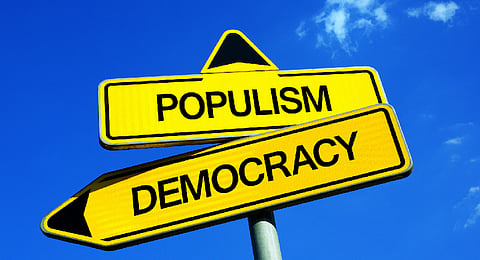Saffers have LOTS in common with Donald Trump supporters – populism study
EDINBURGH — Do you believe a small elite is secretly controlling the world? Do you believe vaccinations cause autism? Do you believe in alien space ships? Then, you are probably Brazilian or South African, or a Donald Trump supporter. That's the message in a global survey that aims to understand why a disease like measles has suddenly spread rapidly after being under control for decades. And why anti-establishment politicians – such as the US president and new Ukranian president, comedian Volodymyr Zelensky – are getting voted in to the highest offices. Conspiracy theorists are likely to also be populists, the study finds. – Jackie Cameron
By Thulasizwe Sithole
In the largest survey of its kind, the Guardian newspaper has uncovered suspicion of vaccines in a big part of world population. It has also discovered that South Africa, after Brazil, is the world's most populist country.
"Populists across the world are significantly more likely to believe in conspiracy theories about vaccinations, global warming and the 9/11 terrorist attacks," says the media outlet.
The YouGov-Cambridge Globalism Project "sheds new light on a section of the world population that appears to have limited faith in scientific experts and representative democracy".
___STEADY_PAYWALL___

